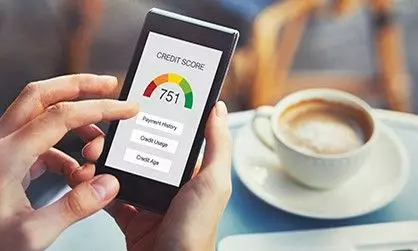Credit report affects your purchasing power

When it comes to purchasing a home, many buyers may not realize the impact their credit report can have on their purchasing power. A credit report is a detailed summary of an individual's credit history and financial behavior. It includes information on credit accounts, payment history, debt-to-income ratio, and more. This report can affect a buyer's ability to secure a mortgage loan and impact interest rates. In this blog, we'll explore how your credit report affects your purchasing power.
Low Score
A low credit score indicates a history of missed payments or high credit card balances. This can be a red flag for lenders, who see this as a higher risk for defaulting on a loan. If a buyer has a low credit score, they may be denied a mortgage loan altogether or offered a loan with a higher interest rate. In some cases, buyers may need to take time to improve their credit score before applying for a mortgage.
High Score
On the other hand, a high credit score can provide buyers with more confidence in their ability to secure a mortgage loan. Lenders see a high credit score as a sign of financial responsibility, which can result in a lower interest rate. This can save buyers thousands of dollars over the life of a mortgage loan. If buyers have a high credit score, they have more bargaining power when negotiating loan terms and interest rates.
Debt Ratio
Another factor that lenders consider when reviewing a credit report is the buyer's debt-to-income ratio. This is calculated by taking the total amount of debt a buyer has and dividing it by their gross monthly income. A high debt-to-income ratio indicates that a buyer may have difficulty making mortgage payments, which can lead to defaulting on a loan. Lenders prefer to see a debt-to-income ratio of 36% or lower. If a buyer's debt-to-income ratio is higher, they may be required to put down a larger down payment or have a co-signer on the loan.
Loan Amount
The loan amount a buyer is approved for can also be impacted by their credit score. If a buyer has a low credit score, they may be approved for a lower loan amount. This can limit the number of homes a buyer can consider or require them to put down a larger down payment. A high credit score can result in a higher loan amount, giving buyers more options when it comes to purchasing a home.
Interest Rates
Interest rates can have a significant impact on a buyer's purchasing power over the life of a mortgage loan. The interest rate a buyer is offered is based on their credit score and debt-to-income ratio. A low credit score or high debt-to-income ratio can result in a higher interest rate, which can add up to thousands of dollars over the life of a loan. A high credit score can provide buyers with a lower interest rate, resulting in significant savings.
In conclusion, a buyer's credit report can have a significant impact on their purchasing power when it comes to buying a home. A low credit score or high debt-to-income ratio can limit a buyer's options and result in higher interest rates. A high credit score can provide buyers with more bargaining power and save them thousands of dollars over the life of a loan. If you're considering purchasing a home, it's important to review your credit report and take steps to improve your credit score if necessary. By doing so, you can increase your chances of securing a mortgage loan and achieving your dream of homeownership.
Categories
Recent Posts











"My job is to find and attract mastery-based agents to the office, protect the culture, and make sure everyone is happy! "
